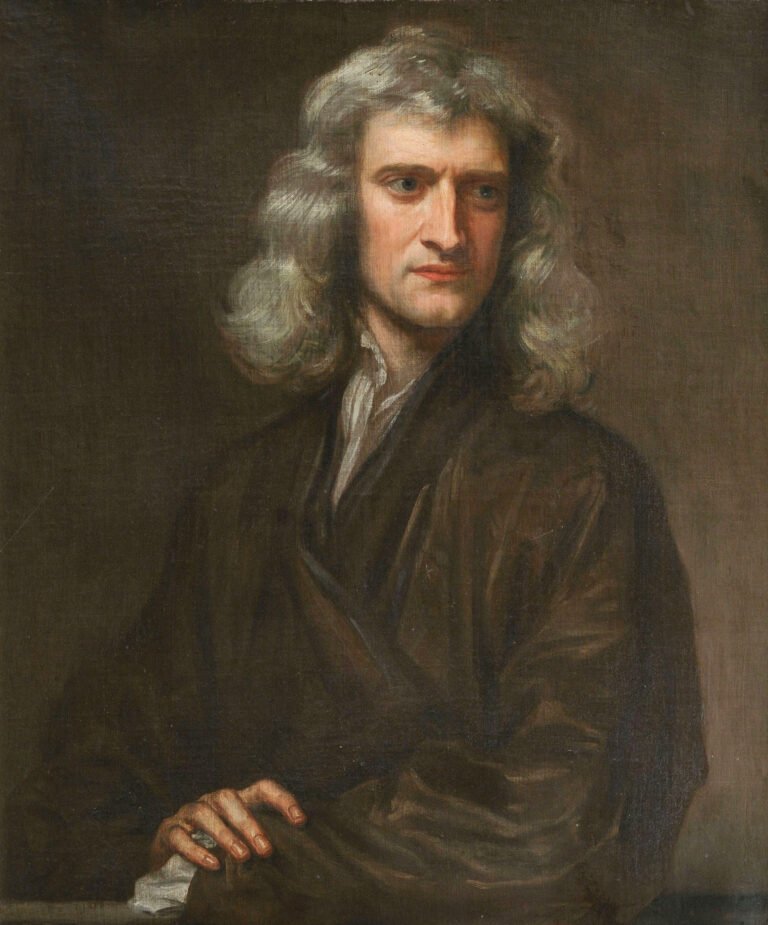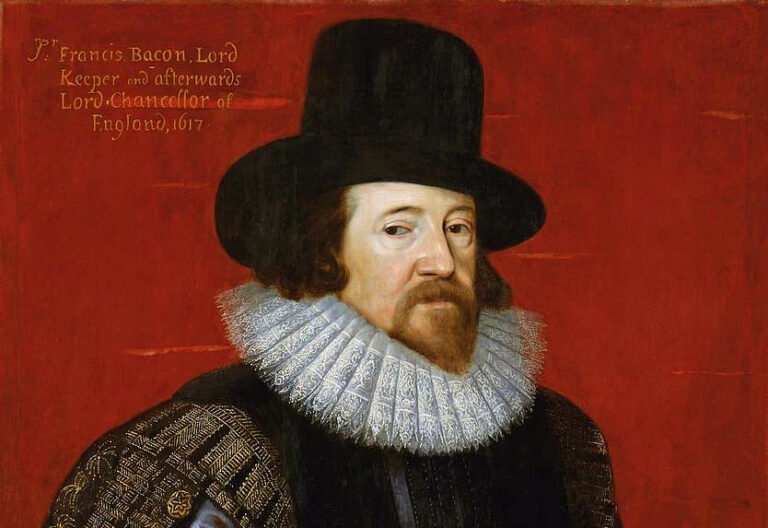William Shakespeare is a name that echoes through history. His works have shaped literature forever.
Born in 1564, Shakespeare became an iconic playwright and poet. His timeless plays and sonnets capture the human experience like no other. From “Hamlet” to “Romeo and Juliet,” his stories explore love, power, betrayal, and tragedy. His unique style and rich language continue to captivate readers and audiences worldwide.
Understanding Shakespeare means diving into the depths of human emotions and societal norms. His influence on the English language is profound, with many phrases we use today originating from his works. Whether you’re a student, a literature enthusiast, or simply curious, exploring Shakespeare’s life and legacy offers endless insights into the world of drama and poetry.
Early Life
William Shakespeare, often called England’s national poet, was a man of mystery. His early life is a fascinating chapter. Let’s explore his beginnings and the influences that shaped him.
Birthplace And Family
William Shakespeare was born in Stratford-upon-Avon, a small market town. This town is located in Warwickshire, England. His birthdate is believed to be April 23, 1564. Shakespeare’s father, John Shakespeare, was a successful glover and alderman. His mother, Mary Arden, came from a wealthy family.
William was the third of eight children. Life in the Shakespeare household was busy and likely full of responsibilities. The family lived in a house on Henley Street. You can still visit this home today. It has become a famous tourist attraction.
Education And Influences
Shakespeare likely attended King Edward VI School in Stratford. This was a grammar school, where he learned reading, writing, and the classics. The curriculum was rigorous, focusing on Latin grammar and literature. These studies would have a lasting impact on his writing.
His teachers introduced him to works of great poets like Ovid and Virgil. These influences are evident in his plays and poems. Shakespeare did not attend university. Despite this, his education laid a solid foundation for his literary career.
Shakespeare’s early life in Stratford also exposed him to the arts. Traveling actors would perform in the town, sparking his interest in theatre. His experiences and education combined to shape the legendary playwright he would become.

Credit: www.williamshakespeare.net
Career Beginnings
William Shakespeare’s career beginnings mark the start of a remarkable journey in literature. This period is filled with his initial works and early successes. Let’s explore these milestones in his career.
Initial Works
Shakespeare started his career as a playwright in the late 1580s. His first plays were primarily comedies and histories. These works showed his talent and creativity. He wrote “The Comedy of Errors” and “Henry VI, Part 1” during this time.
These plays laid the foundation for his future masterpieces. His early works displayed his skill in storytelling. They also introduced audiences to his unique style. The themes of love, power, and human nature were evident even in these initial works.
Early Successes
Shakespeare’s early successes came quickly. By the early 1590s, he was a well-known playwright in London. He joined the Lord Chamberlain’s Men, a famous acting company. This association boosted his career.
One of his early successes was “Romeo and Juliet.” This tragic romance captivated audiences. It remains one of his most famous plays. Another success was “Richard III.” This history play showcased his ability to create complex characters.
Shakespeare’s early successes helped him gain recognition. His plays were performed widely. They attracted large audiences and positive reviews. These achievements paved the way for his enduring legacy.
Major Plays
William Shakespeare, often called the Bard of Avon, wrote many plays. His works are divided into three main categories: tragedies, comedies, and histories. Each type of play has its unique charm and significance. Let’s dive into these major plays and understand their essence.
Tragedies
Shakespeare’s tragedies are known for their intense emotions and dramatic events. They often explore themes like fate, ambition, and human flaws. Some of his most famous tragedies include:
- Hamlet – The story of a prince seeking revenge for his father’s murder.
- Macbeth – A tale of ambition, power, and guilt.
- Othello – Focuses on jealousy and betrayal.
- King Lear – Explores themes of power, aging, and family loyalty.
These plays often end in death and sorrow, leaving a lasting impact on the audience.
Comedies
Shakespeare’s comedies are light-hearted and often have happy endings. They usually involve misunderstandings, mistaken identities, and love triangles. Some popular comedies are:
- A Midsummer Night’s Dream – A magical story set in a forest.
- Much Ado About Nothing – A witty tale of love and deception.
- Twelfth Night – Features complex plots and humorous characters.
- As You Like It – Centers on romance and disguise.
These plays bring joy and laughter, providing a pleasant contrast to the tragedies.
Histories
Shakespeare’s histories focus on the lives of English kings and historical events. They often highlight themes of power, leadership, and conflict. Notable history plays include:
- Richard III – The rise and fall of a ruthless king.
- Henry V – Chronicles the life of a heroic king.
- Henry IV, Part 1 & 2 – Depicts the struggles of a young prince.
- King John – Explores the reign and challenges of King John.
These plays offer a glimpse into England’s past, blending fact and fiction.
Poetry And Sonnets
William Shakespeare, the Bard of Avon, is renowned for his poetic brilliance. His poetry and sonnets have captivated audiences for centuries. These works showcase his mastery of language, emotion, and imagery. Shakespeare’s sonnets, in particular, reveal his deep understanding of human nature and love.
Notable Poems
Shakespeare’s most famous poems include “Sonnet 18” and “Sonnet 116.” “Sonnet 18” begins with the line, “Shall I compare thee to a summer’s day?” This sonnet praises the eternal beauty of the beloved. “Sonnet 116” explores the steadfast nature of true love. These poems remain popular for their timeless themes.
Themes And Styles
Shakespeare’s poetry often explores themes of love, beauty, and time. His sonnets delve into the complexities of romantic and platonic love. He uses vivid imagery and metaphor to convey deep emotions. Shakespeare’s style is marked by his use of iambic pentameter. This rhythmic structure gives his poetry a musical quality.
His sonnets also feature a specific structure. They consist of 14 lines, usually written in iambic pentameter. The rhyme scheme follows the pattern ABABCDCDEFEFGG. This format allows for a clear development of thought and a powerful conclusion.
Shakespeare’s Influence
William Shakespeare’s influence extends far beyond the realm of literature. His works have shaped our culture, language, and even our daily lives. Shakespeare’s legacy endures, reflecting his timeless impact on the world.
Impact On Literature
Shakespeare’s plays and poems have left a lasting mark on literature. He introduced new words and phrases, enriching the English language. His storytelling techniques, character development, and themes influenced countless writers.
Examples of Shakespeare’s Influence:
- His use of iambic pentameter set a standard for poetic rhythm.
- Complex characters like Hamlet and Lady Macbeth inspired future writers.
- Many literary works draw on Shakespearean themes of love, power, and betrayal.
Shakespeare’s works are studied in schools worldwide. His influence is evident in modern novels, plays, and poetry.
Cultural References
Shakespeare’s influence extends to popular culture. His phrases and quotes appear in everyday conversations. Movies, TV shows, and songs often reference his works.
Common Shakespearean Phrases:
- “To be, or not to be” from Hamlet.
- “All the world’s a stage” from As You Like It.
- “A rose by any other name” from Romeo and Juliet.
These phrases are part of our cultural vocabulary. They showcase Shakespeare’s lasting impact on our language and communication.
| Work | Influence |
|---|---|
| Romeo and Juliet | Inspired countless romantic stories and adaptations. |
| Macbeth | Explored themes of ambition and power, influencing political dramas. |
| A Midsummer Night’s Dream | Popularized magical and fantastical elements in storytelling. |
Shakespeare’s influence is undeniable. His works continue to resonate, reminding us of the power of language and storytelling.

Credit: en.wikipedia.org
The Globe Theatre
The Globe Theatre is one of the most famous theatres in history. It played a significant role in the life of William Shakespeare. It was the place where many of his plays were performed. The Globe Theatre stands as a symbol of the Elizabethan era.
Construction And Design
The construction of the Globe Theatre began in 1599. It was built by the Lord Chamberlain’s Men, the company Shakespeare worked with. The theatre was a large, circular structure. It had an open roof, which allowed natural light to illuminate the stage.
The design of the Globe was unique. It featured three levels of seating. The stage extended into the audience, creating an intimate atmosphere. This design allowed the audience to feel close to the action. The Globe Theatre could hold up to 3,000 spectators.
Historical Significance
The Globe Theatre holds great historical significance. It was the venue for many of Shakespeare’s greatest plays. “Hamlet”, “Othello”, and “Macbeth” were first performed here. These performances helped shape the future of English theatre.
The theatre also reflected the culture of the time. It was a place where people from all walks of life came together. The Globe Theatre was a melting pot of society, showcasing the diversity of the Elizabethan era. It provided a platform for Shakespeare’s genius to flourish.
In 1613, the Globe Theatre was destroyed by fire. It was rebuilt the following year, continuing its legacy. The Globe Theatre remains an iconic symbol of Shakespeare’s enduring impact on the world of drama and literature.
Legacy And Adaptations
William Shakespeare’s works have a timeless appeal. His plays and sonnets have influenced literature, theater, and modern storytelling. Shakespeare’s legacy lives on through countless adaptations and reinterpretations. From traditional stage performances to modern movies, his stories continue to captivate audiences worldwide.
Modern Interpretations
Shakespeare’s themes are universal. Love, power, betrayal, and ambition resonate with people today. Modern adaptations often place his plays in contemporary settings. West Side Story, inspired by Romeo and Juliet, is set in 1950s New York. 10 Things I Hate About You reimagines The Taming of the Shrew in a high school setting.
Directors and writers love to experiment with Shakespeare’s works. They create fresh and relevant interpretations. The language remains powerful and poetic. Yet, the settings and characters feel modern and relatable.
Film And Television
Shakespeare’s influence extends to the screen. Many films and TV shows adapt his plays. Some stay true to the original scripts. Others take creative liberties. Hamlet has been adapted into movies like The Lion King. The story of a young lion avenging his father mirrors the classic tragedy.
Romeo and Juliet has seen numerous film adaptations. One famous version is Baz Luhrmann’s Romeo + Juliet. It sets the story in a modern city but keeps the original dialogue. This blend of old and new appeals to young audiences.
Television also embraces Shakespeare. Shows like Shakespeare Uncovered explore his life and works. These programs introduce new generations to his genius.
| Play | Modern Adaptation |
|---|---|
| Romeo and Juliet | West Side Story |
| The Taming of the Shrew | 10 Things I Hate About You |
| Hamlet | The Lion King |
| Macbeth | Throne of Blood |
Shakespeare’s legacy is a testament to his genius. His works continue to inspire and entertain. Whether on stage, film, or TV, his stories remain relevant.
Shakespeare’s Enduring Appeal
William Shakespeare’s works have captivated audiences for centuries. His plays and poems have stood the test of time. What makes his work so enduring? Why do people still find his stories compelling? Let’s explore Shakespeare’s enduring appeal.
Relevance Today
Shakespeare’s themes are universal. Love, power, jealousy, and ambition are still relevant. His characters face problems we understand. This makes his work relatable. People see themselves in his stories. This connection keeps his plays alive.
His language is also unique. Phrases like “to be or not to be” are famous. These lines are memorable. They show his talent with words. Many people quote Shakespeare without realizing it. This shows his impact on our language.
Global Reach
Shakespeare’s work is performed worldwide. His plays are translated into many languages. This allows people from different cultures to enjoy his stories. Each performance brings something new. This keeps his work fresh and exciting.
Schools and universities study his plays. Students learn about his characters and themes. This education spreads his influence. Scholars write books and articles about him. This keeps his work in the public eye.
Shakespeare’s work inspires movies, books, and art. Modern adaptations keep his stories relevant. Directors and writers put their spin on his plays. This shows his lasting impact on culture.
FAQs
Who Was William Shakespeare?
William Shakespeare was an English playwright, poet, and actor. He is widely regarded as one of the greatest writers in the English language.
What Are Shakespeare’s Most Famous Works?
Shakespeare’s most famous works include “Romeo and Juliet,” “Hamlet,” “Macbeth,” and “Othello. ” These plays are still widely studied and performed today.
When Did William Shakespeare Live?
William Shakespeare lived during the late 16th and early 17th centuries. He was born in 1564 and died in 1616.
Why Is Shakespeare Important?
Shakespeare is important for his timeless themes, complex characters, and innovative use of language. His work has influenced literature and theatre for centuries.
Conclusion
William Shakespeare’s work remains timeless and impactful. His plays and sonnets resonate today. His characters and plots are unforgettable. People of all ages enjoy his stories. His influence on literature is immense. Reading his work is a journey worth taking.
Dive into his world and experience the magic. Shakespeare’s legacy continues to inspire and educate. His brilliance will never fade.








